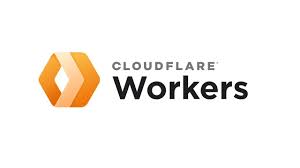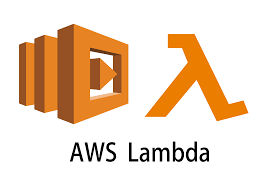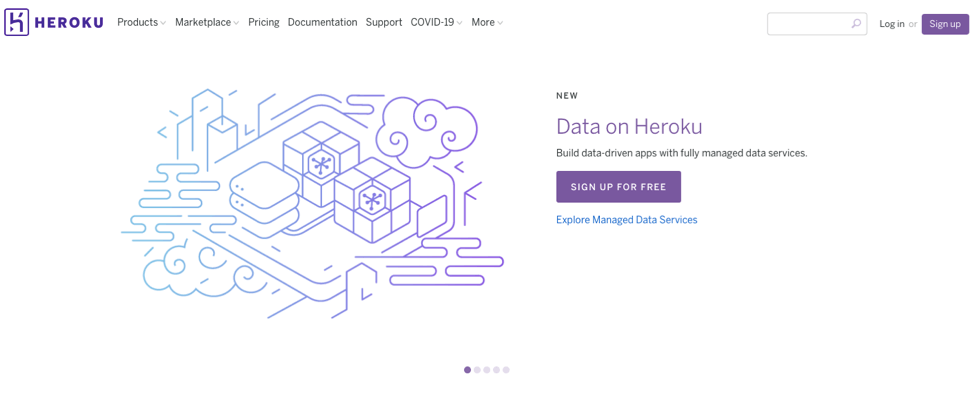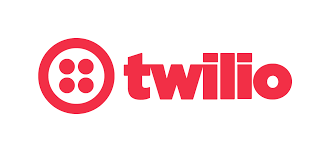Cloudflare Workers Alternatives
Serverless development is the need of the hour for thousands of businesses across the globe today. Developers are warming up to the idea of hassle-free application creation, deployment, and management without the need for handling infrastructure management.
The advances of serverless computing technology have facilitated just that through reliable solutions such as Cloudflare Workers. It is one of the most popular options for businesses across industry domains due to its features.
While Cloudflare Workers is a superb serverless option, there are also several equally good alternatives to look at. Take a look at the best currently available Cloudflare Workers alternatives below.
Contents
- 1 Cloudflare Workers Overview
- 2 Features
- 3 Top 5 Alternatives to Cloudflare Workers
- 4 AWS Lambda
- 5 Features
- 6 Pricing
- 7 Heroku
- 8 Heroku Main Features
- 9 Heroku Pricing
- 10 RedHat OpenShift
- 11 Features
- 12 Pricing
- 13 Google Cloud Functions
- 14 Features
- 15 Pricing
- 16 Twilio Runtime
- 17 Core Functions
- 18 Pricing
- 19 Conclusion
- 20 FAQ
- 21 What is Cloudflare Workers?
- 22 What are the core features of Cloudflare Workers?
- 23 What are the best alternatives to Cloudflare Workers?
Cloudflare Workers Overview

Cloudflare Workers is a serverless application platform that works with the Cloudflare cloud network. Developers on this platform can utilize its serverless environment for developing applications and improving already existing ones.
Developers prefer Cloudflare Workers as they are free from the responsibilities of managing, maintaining, and configuring infrastructure.
Features
- Automatic scaling – One of the most important features of Cloudflare Workers is its automatic scaling. Auto-scaling helps in automatic traffic routing and load balancing across multiple servers.
- No server maintenance required – Opting for Cloudflare Workers helps developers reduce the need for configuring and maintaining servers. They can easily rely on the Cloudflare features like the CLI and API or web UI to fulfill deployment needs.
- Vast global presence – Cloudflare Workers can establish deployments across its many data centers placed around the globe through V8 isolates. The Cloudflare network helps to speed up code and makes sure that end-users can enjoy optimal availability for their resources.
Top 5 Alternatives to Cloudflare Workers
If, for any reason, Cloudflare Workers does not suit your development needs, below are some great alternatives to it.
AWS Lambda

AWS Lambda is a popular serverless computing platform offered by Amazon AWS. This widely-relied upon backend is known for event response-based code execution and performs automatic management of computational resources.
AWS Lambda is a suitable platform for developing small applications that are also demand-based and react to events and information.
Features
- AWS Lambda lets developers create new app backends that can be brought into action based on surges in demand.
- Lambda also has fault tolerance, which is an important feature for performing efficient capacity management across different regions.
- AWS Lambda users can fetch code on demand, and the platform’s automatic scaling enables effortless incoming requests.
Pricing
Pricing for AWS Lambda differs based on several factors, including execution time (ms) and memory size (GB). Users get billed based on their compute charges, which are $0.00001667 per invocation, and request charges are at $0.2/M <requests.
Heroku

Heroku is a market-leading platform as a service offering that enables developers to perform effortless deployment, scaling and management.
Developers around the world prefer it due to its support for multiple programming languages such as Node.js, Java, Go, Scala, Python, PHP, Clojure, and Ruby. Heroku uses virtual containers known as Dynos to enable users to run applications.
Heroku charges users on the basis of a monthly model, where users are charged depending on the number of Dynos or virtual computers being used by their apps. The Heroku PaaS platform and apps made with it are AWS-deployed. Heroku users are able to perform fast and hassle-free application development.
Heroku Main Features
- Heroku DX – Heroku DX is an application-driven mechanism that helps developers lay a strong focus on app development and deployment.
- Heroku Runtime – Heroku Dynos or containers are required for running apps. It comes with a fully-managed runtime and provides support for multiple programming languages.
- Heroku OpEx – Heroku OpEx lets users identify and solve application issues with ease. Users can also use OpEx for modifying operation flows.
Heroku Pricing
- Free and Hobby – Heroku has a free plan to help developers get started without paying anything. It is recommended for small-scale non-commercial application deployment.
- Production – The Heroku Production plan starts at a rate of $25 per month. The cost goes up based on the differing additional requirements of users.
- Advanced – The Heroku Advanced plan is available at a rate of $250 per month. It is most well-suited for businesses that tend to have more sophisticated development requirements.
- Enterprise – Heroku Enterprise is a customizable package that requires users to pay depending on their specific requirements. It is the best choice for companies that have more advanced compliance and security requirements.
RedHat OpenShift

RedHat OpenShift is a collection of containers, with the OpenShift Container Platform being the critical component. It is an on-premises Kubernetes-managed PaaS comprising Docker containers and powered by the Red Hat Enterprise Linux. The company also provides a SaaS for users along with the OpenShift Dedicated managed service.
Features
- RedHat Marketplace – The RedHat Marketplace is an online platform where users can try out, buy and deploy OpenShift offerings. Some of its perks include easy contracting and billing, extensive support, governance, and more.
- Cloud Features – RedHat OpenShift Cloud Features include registry, authorization, container runtime, monitoring, networking, and more. Users can also take advantage of the better security provided by automated lifecycle management, custom offerings, management clusters, and other features.
- Enterprise Kubernetes – Enterprise Kubernetes by RedHat is a security offering for enterprises that are in need of a dependable Kubernetes platform.
Pricing
- Managed – OpenShift has several managed plans that are offered to users in association with many notable technology partners of RedHat including AWS (Red Hat OpenShift Service on AWS), Microsoft (for Microsoft Azure Red Hat OpenShift), and IBM (Red Hat OpenShift on IBM Cloud). Users can also choose the Red Hat OpenShift Online and RedHat OpenShift Dedicated plans based on their requirements.
- Self-Managed – The Self-Managed plans of Red Hat are the Red Hat OpenShift Kubernetes Engine and Red Hat OpenShift Container Platform. These are more flexible options for the platform’s users.
Google Cloud Functions

Google Cloud Functions is a leading serverless runtime environment for the development of cloud services. Developers can rely on this platform to create singular functions that are linked to cloud setups and service events. Users of Cloud Functions have full control over all aspects, including provisioning and server management.
Features
- Google Cloud Functions has a serverless architecture that enables developers to write code freely without having to handle infrastructure development and management requirements.
- Google Cloud Functions is a highly scalable option due to demand-based automatic resource scaling.
Pricing
Pricing for Google Cloud Functions depends on various factors like data resource use, processor resources, memory value, and the number of requests. They can choose a free plan that comes with up to 2 million calls and 5 GB egress per month.
Twilio Runtime

Twilio Runtime is a selection of tools offered to developers for helping them create, scale, and use applications. It has components such as API keys, CLI, debug tools, helper libraries, and an environment for hosting static assets and Node.js code – Twilio Functions & Assets.
Twilio Functions & Assets is the serverless environment offered to users under the Twilio Runtime package. It helps developers create scalable event-driven apps for businesses. Assets are utilized to upload and host static files capable of supporting voice, web, and messaging apps.
Core Functions
- Secure By Default – It is a feature that makes sure that Twilio executes function requests automatically.
- Serverless – Twilio Functions help to designate operational load to Twilio as it is serverless. It helps to reduce the need for infrastructure maintenance.
- Autoscaling – Autoscaling is a feature to enhance capacity for meeting specific application demands.
- Native Twilio Integration – Integration helps to utilize functions as a priority Twilio console member with the default Twilio REST Helper Library.
Pricing
- Pay-as-you-go – The pay-as-you-go pricing model of Twilio Runtime is a flexible plan that keeps users independent. They can pay for resources when the need arises and potentially save costs.
- Volume discounts – This is another pricing model that is impacted by usage. The more you use it, the better discounts you get with this plan. As a result, the chances of overpaying are reduced.
- Committed-use discounts – Users who commit to using the platform on a long-term basis qualify for this plan. Pricing can be estimated by communicating with the company’s sales representatives.
Conclusion
Cloudflare Workers is one of the most promising and feature-rich serverless application development options available today. The functionality offers to users helps to facilitate easy and hassle-free development.
The alternatives given above are also worth looking at if you are seeking different features and functionalities. Compare the features and pricing of different serverless options to pick the right one.
FAQ
What is Cloudflare Workers?
Cloudflare Workers is a serverless application platform that works with the Cloudflare cloud network.
What are the core features of Cloudflare Workers?
– Serverless
– Autoscaling
– Global Network
What are the best alternatives to Cloudflare Workers?
– AWS Lambda
– Heroku
– Redhat OpenShift
– Google Cloud Functions
– Twilio Runtime



